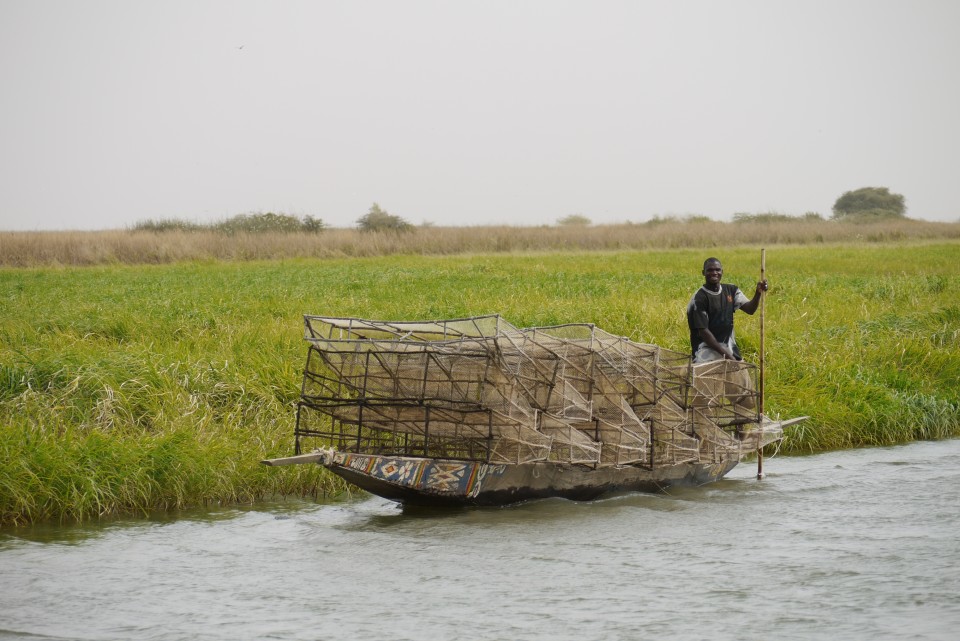
New irrigation plans threaten food production Inner Niger Delta
-
Climate and disaster risks
Food production in the Inner Niger Delta in Mali will decline as a result of government plans to expand irrigation in Office du Niger, according to new research commissioned by Wetlands International. Expanding irrigation in Office du Niger will reduce the amount of water flowing into the Inner Niger Delta by nearly a quarter in 2045, which will have a severe impact on fish, meat and rice production in the delta.
The Malian government aims to triple the irrigated area of Office du Niger. The goal is to add 330,000 ha to 125,000 ha already being irrigated by Office du Niger. Office du Niger is a semi-autonomous government agency that manages one of the largest and oldest irrigated areas of West Africa. The plan to expand the irrigated area of Office du Niger hinges on the construction of the Fomi dam upstream in Guinea and will reduce the average water volume flowing into the delta by 23%. Wetlands International calls for a national debate about the plan, since so far consultation has been very limited.
“Less water flowing into the Delta means a lower flood level and a smaller flood extent”, explains Karounga Keïta, national coordinator of Wetlands International in Mali. “This will have a direct impact on food production in the Inner Niger Delta including fish, livestock and floating rice. It is not sure that the increase of rice production in the Office du Niger zone can compensate the decrease of food production in the Inner Niger Delta”.
New research for Wetlands International shows that current plans for expanding irrigation will reduce the fish trade by 31%, the surface of pasture by 28% and the production of non-irrigated, floating rice in the Inner Niger Delta by 37%.
Food security
The irrigation plans predict that rice production in Office du Niger to increase by 58%. “Food security is very important for Mali”, underlines Karounga Keïta. “However, we need to look at the wider picture. While food production increases in Office du Niger, it will drop in the Inner Niger Delta. This will also affect the Malian economy, at least with respect to fish and livestock production, and it will have a major impact on livelihoods and biodiversity. On top of this, less water flowing into the Inner Niger Delta will dramatically increase the likelihood of a disaster year.” In a disaster year the delta has a maximum inundated surface of 8000 km2; the last time this happened was during the Great Drought in 1984.

The Inner Niger Delta is one of the largest seasonal floodplains in the world. It supports an estimated 1.5 million people directly with fish, grazing grounds for cattle and fertile land for rice paddies and other crops.
Adapting the current plans
Proposals to mitigate negative consequences of the new irrigation plan raise many questions, for example related to livestock. This is relevant for pastoralists from the North in Mali and South East Mauretania. The irrigation plans want to exclude the traditional nomadic livestock system from the irrigation zones and direct the herds towards the Inner Niger Delta. This is impossible, because the carrying capacity of the grazing grounds in the IND has already been reached, and tensions between different users will increase. Pastoralists are important actors in the current conflict in Mali. What the loss of grazing grounds means for security in the region remains to be seen.
Wetlands International wants to move from the current focus on maximum extension of the irrigated area in Office du Niger to a more flexible approach, allowing for maximum investment in innovation. Promising options include optimising water efficiency in Office du Niger, growing drought resistant crops, and extension of local irrigation. A wider debate about such an adaptive implementation strategy is necessary.
